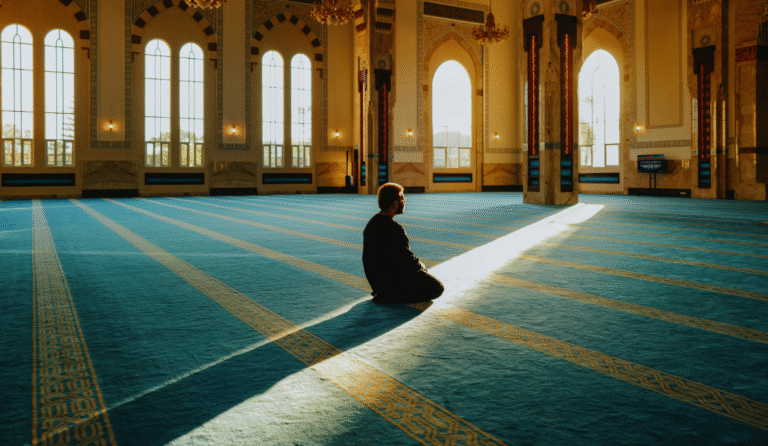In the modern world, fostering understanding among individuals of different religions is important. This effort is known as interfaith dialogue. It is founded on respect, honesty and search of shared values. It is not about arguing, but about listening, sharing and connecting with people. The teachings of Quran and Prophet (PBUH) are the source of guidance for Muslims.
Muslims with people of other religions are able to work for harmony, tolerance, justice and welfare of humanity through interfaith dialogue. This strategy promotes harmony and eliminates disputes among societies.
The Concept of Interfaith Dialogue in Islam
Islam believes that since Allah created everyone and all people belong to the same family. The Quran demonstrates that Allah’s plan includes cultural and religious diversity. People are attracted to Islam with intelligence and skilful words but they do not feel forced to follow it. This highlights how Islamic teachings naturally encourage interfaith dialogue. It enables polite conversation about religion free from violence or hostility. “To you your religion, and to me mine,” the Quran states. This verse shows the importance of religious freedom. Islam does not force anyone to convert. Islam encourages understanding and peace while teaching that faith must be freely chosen.
Examples of Interfaith Dialogue from Islamic history
Muslims have a long history of engaging in interfaith dialogue. Prophet (PBUH) wrote the constitution of Madinah, which is a well-known example. It made it possible for Jews, Muslims and other ethnic groups to share space peacefully in one society. All of the groups were in charge of keeping the city safe and each has freedom to practice their religion. This was among the first historical models of peace. The period when Muslims ruled in Spain or Al-Andalus is another example. Jews, Muslims and Christians coexisted and exchanged knowledge. Art, philosophy, science and medicine all are advanced throughout this time. It shows that how interfaith dialogue can benefit everyone’s lives.
Promoting Peace by interfaith dialogue
Islam says that interfaith dialogue fosters trust and faith. Many uncertainties and misunderstanding vanish when individuals of many religions interact. Fear and ignorance are the root causes of many disputes. Communication provides opportunity to discover similar ideas and learn more about the people. The most suitable state for human life is peace according to Islam. The word Islam originates from the Arabic word “Salam” meaning “peace. In order to avoid war, Prophet (PBUH) frequently formed many treaties with various groups and tribes. These actions demonstrate that Islam views peace as both a responsibility and an objective.
Promoting Understanding through Dialogue
Another outcome of interfaith dialogue is understanding. Islam believes that knowing about other people is a part of Allah’s gift of wisdom. People can better grasp other’s beliefs by interacting and asking questions from each other. This eliminates bias and misconceptions. For example. A lot of people are unaware that Islam respect older Prophets like Jesus and Moses. They notice similarities rather than differences when they discover this through dialogue. This fosters respect and establish connections between communities.
Tolerance in Islam
Islamic teachings place a strong emphasis on tolerance. It involves letting people to live their lives according with their beliefs without hostility or violence. Religious compulsion does not exist according to Quran. This shows that the faith need to be free choice, not forced by others. Prophet (PBUH) also demonstrates tolerance by his deeds. He (PBUH) chose forgiveness over revenge when he returned to Makkah after years of fighting. Muslims now follow this example of mercy and kindness while interacting with others. A lack of tolerance generates violence and rage in the modern world. These issues can be mitigates by interfaith dialogue rooted on Islamic principles of tolerance. It serves as a reminder that difference are not always aggressive and hostile.
Modern Importance of Interfaith Dialogue
The globe is more interconnected now that it was in past. In nearly every nations, people from various beliefs live together. Interfaith dialogue is even more crucial. Religious misunderstandings can spread swiftly and lead to conflict. Islam encourages people to participate in dialogue to stop disputes. Muslim leaders and scholars often participate in interfaith conferences to push for peace, understanding and tolerance. Global issues such as poverty, the environment and violence are discussed in these conferences. This proves that people from multiple religions can team up to for the well-being of humanity.
Barriers to Interfaith Dialogue
Although, there are number of advantages of interfaith dialogue, these are also some hurdles that make it challenging. Misunderstanding is one hurdle. Fear and doubts are sparked by the fact that many people lack accurate understanding about other religions.
Stereotypes is another barrier. Communities may become distrustful of one another as a result of negative media or social portrayals. People could show up with hostility and hate rather than respect, which makes dialogue more difficult.
Extremism present another challenge. Religion is frequently exploited by small organizations to promote hatred. Community relations are harmed by this. Islam encourages moderation and condemns extremist behaviour.
